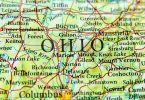Editor’s Note: The following is an abridged version of a blog post by James Donnelly, a PRSA member and senior vice president of crisis management at Ketchum. The full post — with updates and interesting dialogue through the “comments” section — can be found here.
The recent WikiLeaks disclosures of a quarter-million confidential American diplomatic cables sent ripples through nearly every corner of government, media, business and elsewhere. Just wait until the next batch of disclosures occur. We know that corporate leaks are coming. Businesses had better be ready.
Implications of future WikiLeaks disclosures (as well as the eventual copycats it will spawn) are far reaching. It’s probably far too soon to have a firm handle on all of the effects. Thus, what follows are initial thoughts on implications (based on some perspectives captured through links throughout.)
Unchecked power. Assange and his team have the sole power to hit “publish” or to ignore what they receive. Only they know when that button will be pushed. There are many moral hazards here:
- WikiLeaks can move markets. What is to stop WikiLeaks team members — or friends-of-friends — from shorting stocks a day or two before a major leak?
- WikiLeaks is not accountable. Assange is shadowy; the people who work for him have yet to cast even a shadow. If they cause undue harm, what happens? They shrug? One writer in The Economist calls the recent release a “poor editorial decision” and recommends “an ethical review board.” Was the decision editorial? By what measures would a review board hold this group accountable?
- Who died and made Assange boss? Should one person or organization have the power to damage governments or corporations based on a singular view of what is and is not just?
Bias. All people and organizations carry a bias. A peek into the bias that may have motivated Assange to create WikiLeaks should provide no comfort to any organization.
- What are the origins of what Julian Assange has become? The David Brooks’ op-ed in The New York Times paints a fairly interesting picture
- What drives Assange and WikiLeaks? We know that Assange likes “crushing bastards” and in that pursuit has jeopardized Afghan military informants’ lives. This raises an interesting question — if WikiLeaks receives highly incriminating information on an activist group, a junk science benefactor or a labor union, will it apply the same dogged vigilence against those — ahem — “bastards?”
Repercussions of unprofessionalism. Some coverage of WikiLeaks does not exactly inspire confidence that this organization can responsibly handle its own load.
- Sloppiness. In this article in The Wall Street Journal, we learn that the WikiLeaks people can be sloppy: in just two hours of searching the Times of London found specific information on Afghan informants despite Assange’s assertion that documents were withheld to keep people from harm.
- Stretched? Faced with additional criticism from human rights groups on the situation, Assange asked for their help in redacting documents. Thus, we’ve also learned that WikiLeaks may not have ample resources.
Public vs. private sector. As WikiLeaks moves its crosshairs from governments to corporations, we need to be mindful of the differences between secret/confidential information between the two sectors.
- Less cover for corporations. Doug Pinkham, president of the Public Affairs Council, points out that corporations mostly “can’t claim that they need to keep information private for national security reasons.”
- Proprietary information at risk? Competitive industries in free markets, by their nature, must keep some of the jewels hidden. Although many have suggested that these disclosures is not what Assange is after, this could very well be collateral damage of such leaks.
Of course, these implications are just the tip of the iceberg. Watch this space.







[…] […]
Wikileaks becoming more and more popular nowadays are definitely going to be able to move markets, however will it be able to move in such away that the Friday news release of jobless claims can?